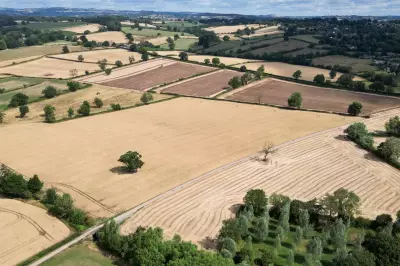
In a momentous ceremony that celebrated a lifetime of extraordinary achievement, Dr Jane Goodall, the world-renowned primatologist and conservation icon, was honoured with the National Geographic Society's most prestigious award - the Hubbard Medal.
A Lifetime of Groundbreaking Research
The 90-year-old British ethologist, who revolutionised our understanding of chimpanzees and wildlife conservation, received the medal during a special event at the Society's Washington D.C. headquarters. This recognition comes more than six decades after her pioneering research began in the forests of Gombe, Tanzania.
Goodall's work fundamentally altered scientific understanding of animal behaviour, demonstrating that chimpanzees use tools, possess complex social structures, and exhibit distinct personalities - discoveries that reshaped the relationship between humans and the animal kingdom.
From Humble Beginnings to Global Impact
Dr Goodall's journey from a curious young woman with a notebook to one of the world's most respected scientists represents an extraordinary scientific odyssey. Her early observations, conducted with minimal formal training, challenged established scientific conventions and opened new frontiers in behavioural research.
"When I started in 1960, we were still defined as the only tool-making, tool-using creature," Goodall reflected during the ceremony. "That all changed when I saw David Greybeard using and making tools to fish for termites."
Expanding Conservation Efforts Worldwide
Beyond her revolutionary research, Goodall has become a powerful voice for environmental conservation through her Jane Goodall Institute, established in 1977. The organisation now operates conservation programmes across Africa while running global youth initiatives that empower young people to become environmental stewards.
Her Roots & Shoots programme, launched in 1991, has grown into a global movement active in over 50 countries, inspiring new generations to take action for people, animals, and the environment.
A Legacy of Hope and Perseverance
Despite the numerous challenges facing wildlife conservation today, Goodall remains characteristically hopeful. "We have to admit we're in a pretty dark time environmentally, but if we all get together and take action, we can slow down climate change, we can slow down biodiversity loss," she affirmed.
The Hubbard Medal adds to Goodall's extensive collection of honours, which includes being named a UN Messenger of Peace and receiving France's Legion of Honour. Yet despite her global recognition, she continues to spend approximately 300 days per year travelling and advocating for environmental causes.
As this remarkable nonagenarian shows no signs of slowing down, her message remains clear: every individual has the power to make a difference in preserving our natural world for future generations.





